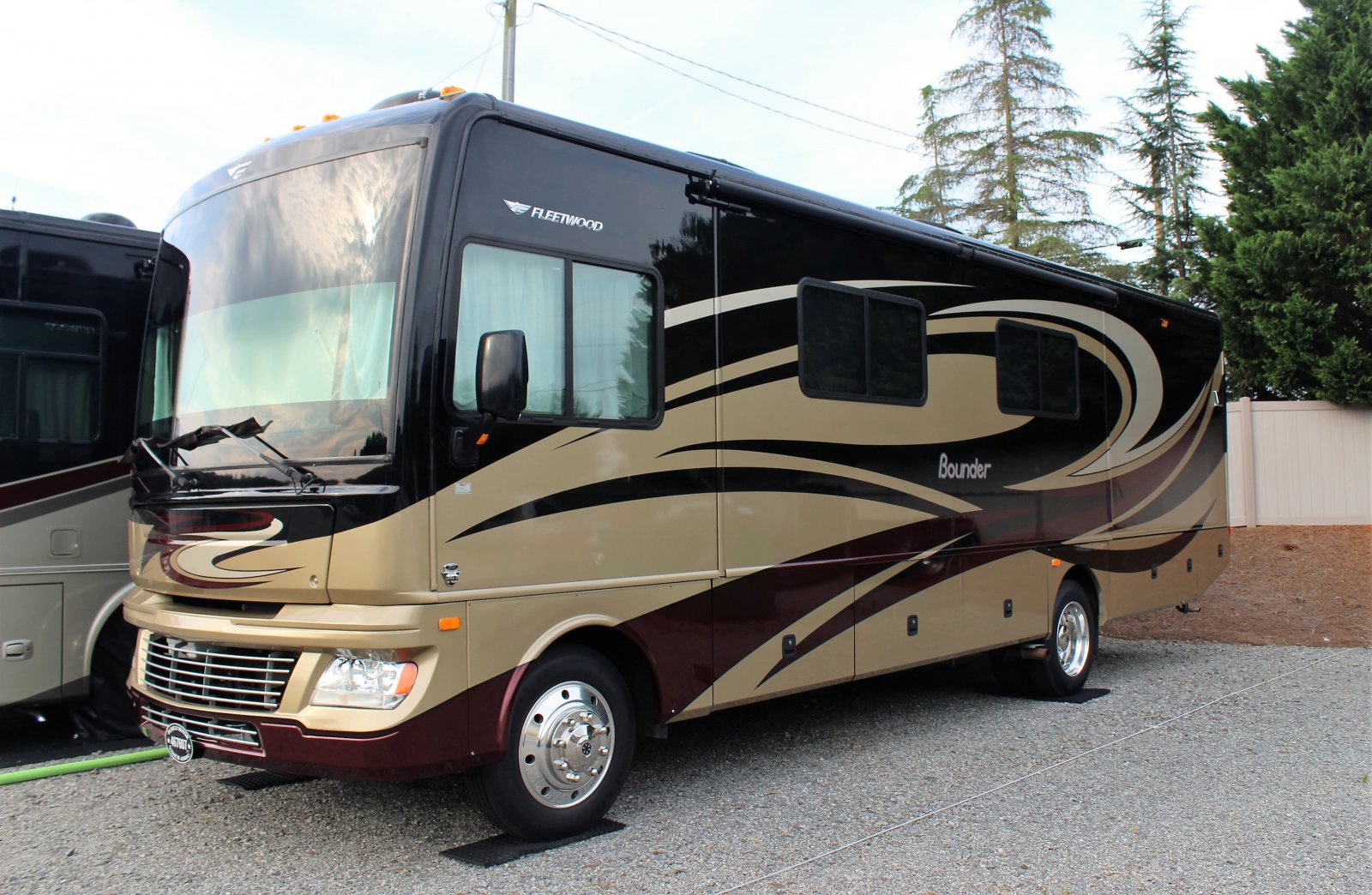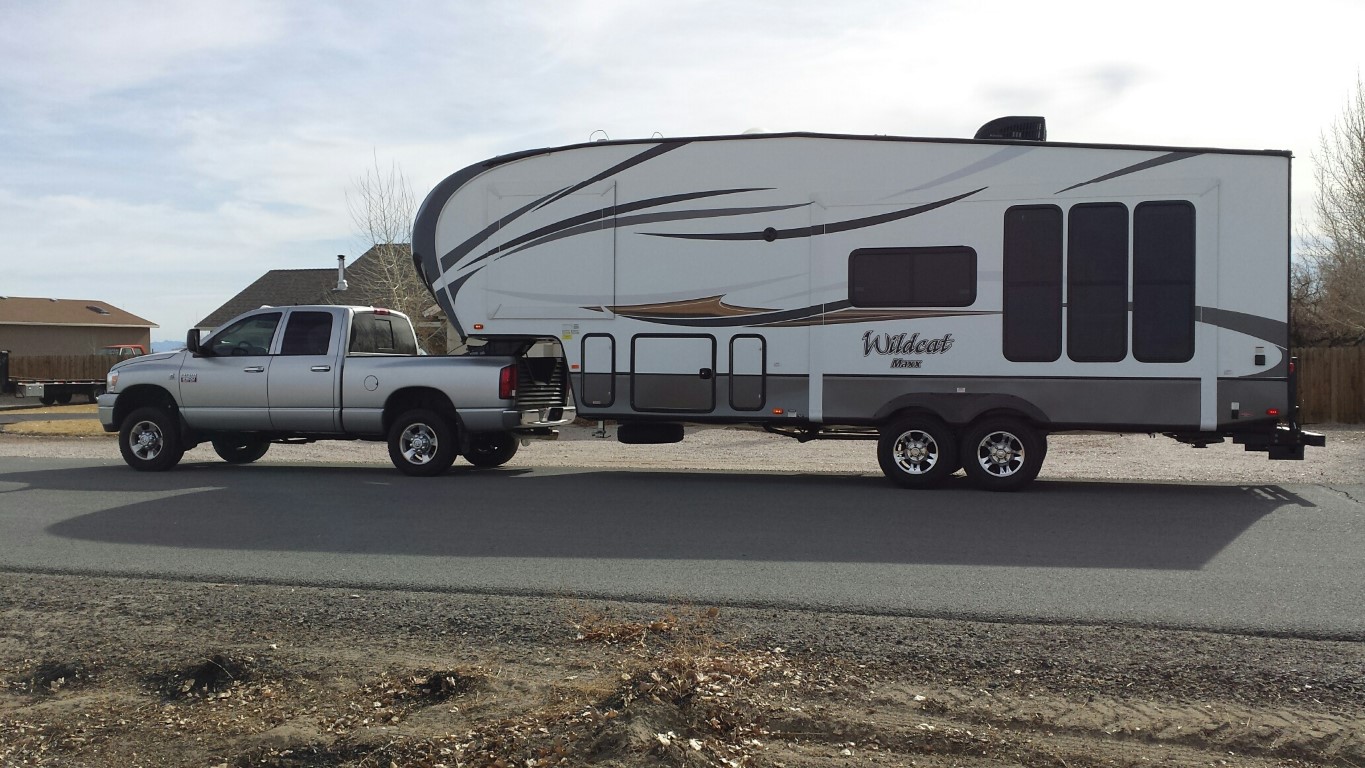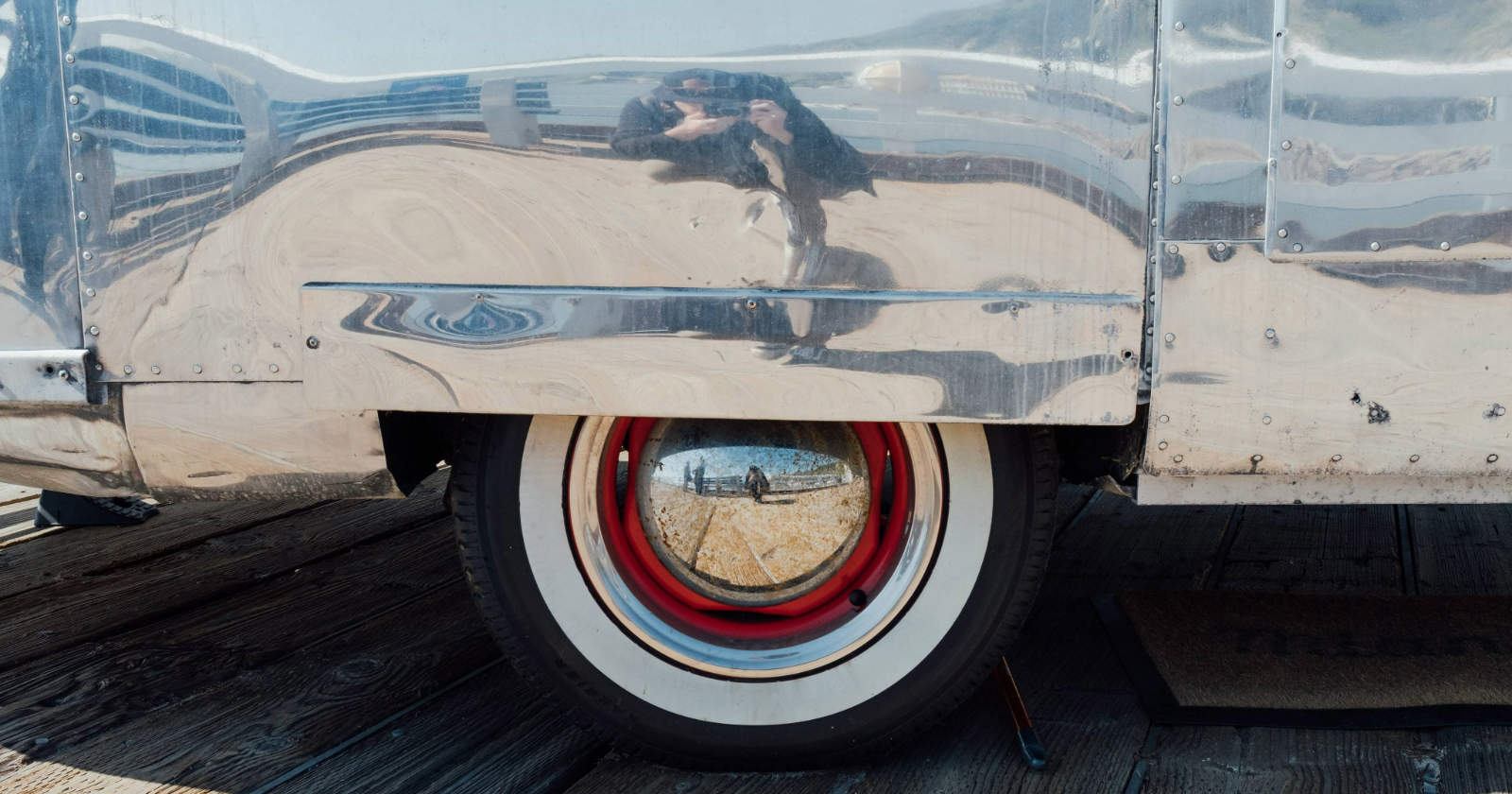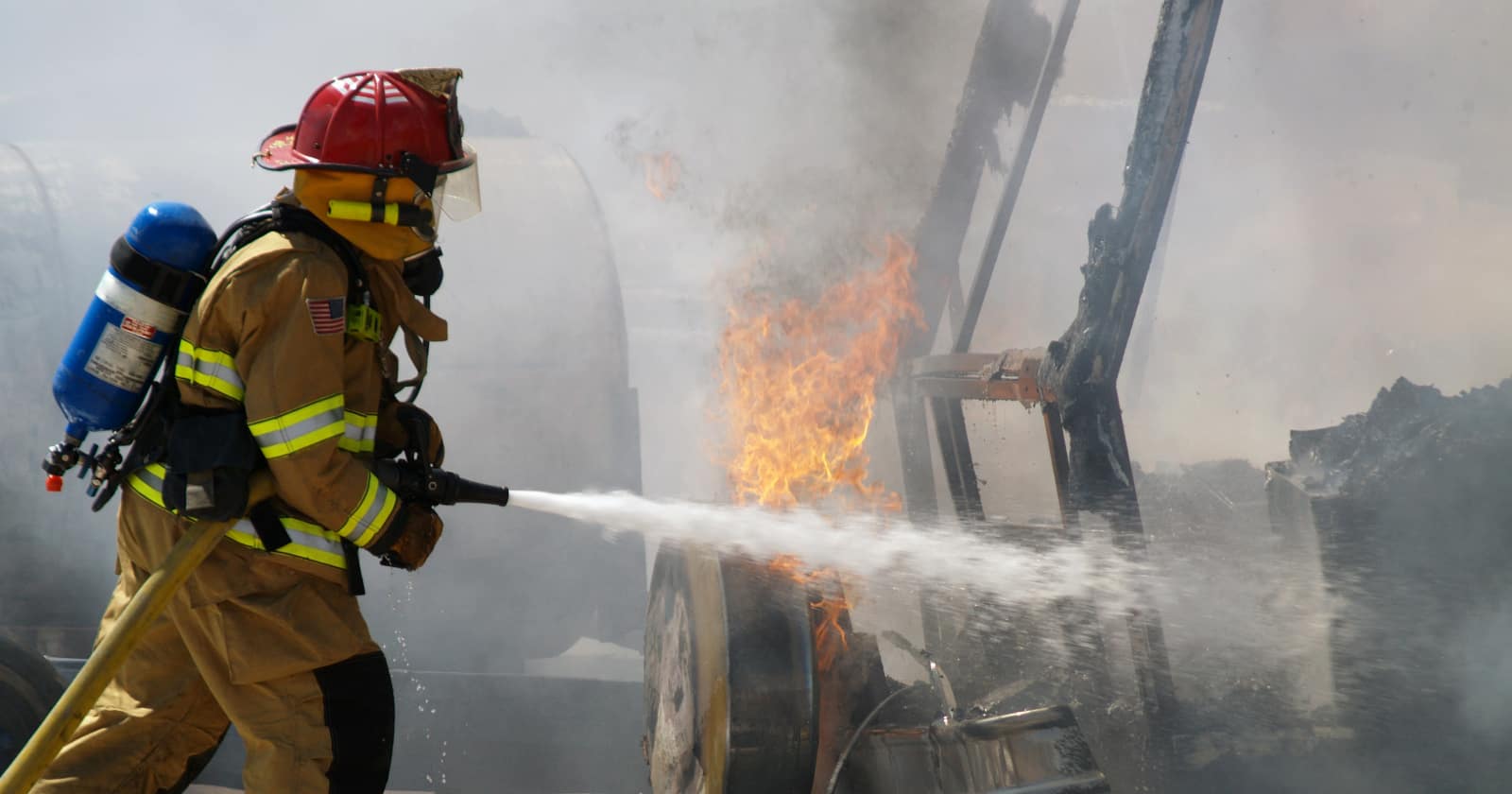
Keep Your RV Tires From Getting Damaged This Summer
The heat and humidity during the summer can take a big toll on your tires. It can cause dry rot, deterioration, and an increase in tire pressure, all of which can damage your tires and potentially cause a dangerous blowout. These are a few simple measures you can take this season to ensure a safe, smooth ride.
1. Don’t overload your RV
Overloading your RV with too much gear will put too much weight on your tires and cause them to blow out. Check your RV owner manual for the GVWR (Gross Vehicle Weight Rating) and GCWR (Gross Combination Weight Rating) to learn the maximum weight that your rig can handle including all of the passengers.
Many weigh stations have a certified CAT scale that you can use for a cheap and easy weight measurement. Wheel position weighing only costs about $10, and $2-3 more dollars for each re-weigh, which is highly recommended. You can learn more about trailer weight in this article from RV LIFE.

2. Watch your tire pressure
Tire pressure is another common cause of blowouts. If your tire pressure is too low, the sidewalls will flex, which can cause them to overheat and explode. When the tire pressure is too high, your RV will lose traction and stopping distance. Both of these will cause uneven wear on the tires.
Check your RV or the owner’s manual to learn the recommended PSI. Get a tire gauge or tire pressure monitoring system, regularly inspect your PSI and adjust it as needed.
Also, keep in mind that paved roads absorb heat during the summer and this can cause your tire pressure to fluctuate. According to Firestone, tires can lose or gain about 1 PSI for every 10 degrees F change in temperature. Slow down in speed or take breaks every couple of hours if you’re making a long drive on a hot day. Check out campground reviews on CampgroundReviews.com to learn what kind of surface you’ll be parking on.
3. Protect your tires from UV light
Sunlight can damage your RV in many ways over time, inside and out. Clean your tires regularly and use a SunBlock protectant to prevent them from peeling or cracking due to the prolonged UV exposure. Also, put on some tire covers when you’re parked for extended periods of time.
4. Replace your old tires
RV tires generally last about 3-6 years, depending on how much they’ve been driven on and how well you’ve maintained them while in storage. Keep your tires up-to-date and regularly inspect them for bumps, cracks, or wavy-looking areas. When you need to buy new tires, opt for new ones when you can and know what to look for if you are buying used tires.
Track your maintenance
Make sure you keep track of all your RV tire maintenance and repairs with an online tool such as RV LIFE Maintenance. Not only can you keep all of your documents in one place, but you’ll also receive timely reminders when maintenance is due to help you avoid costly repairs and potentially serious accidents.



